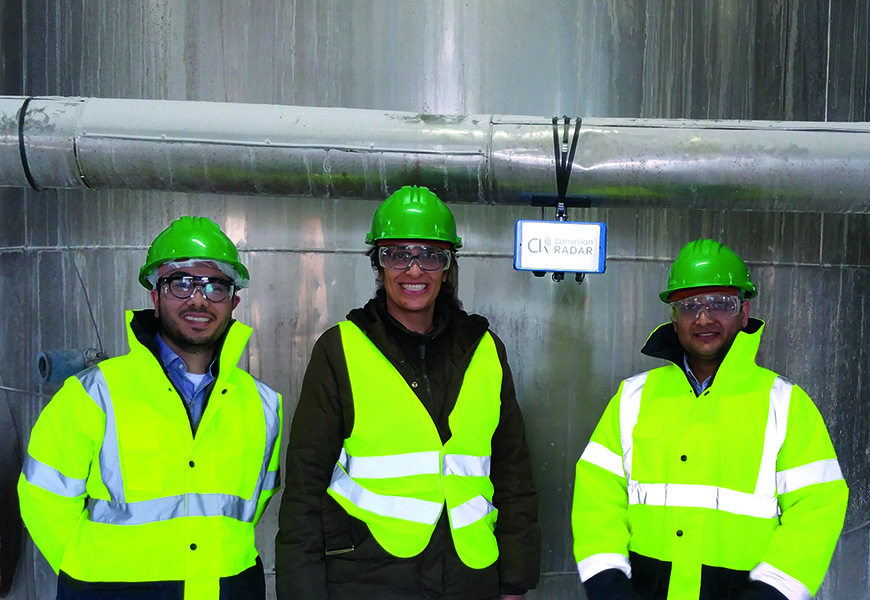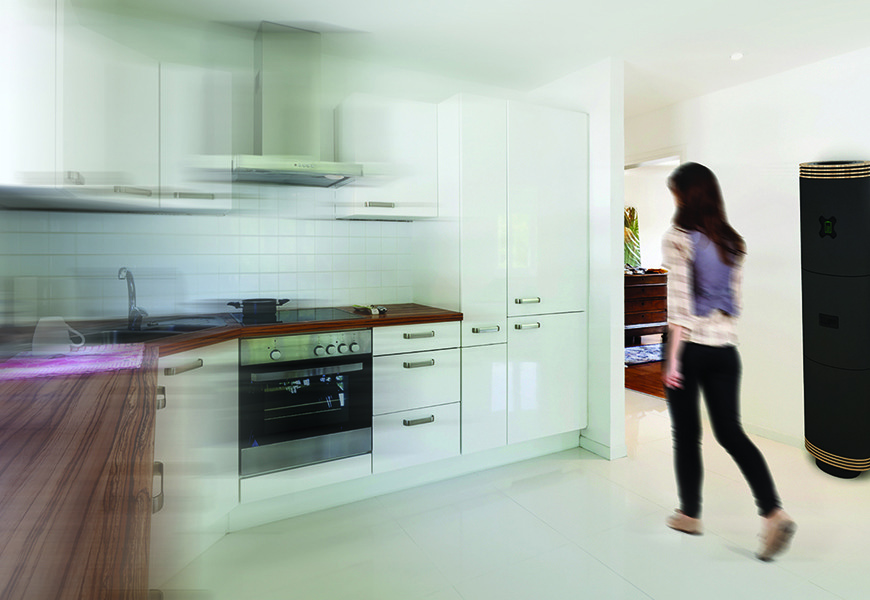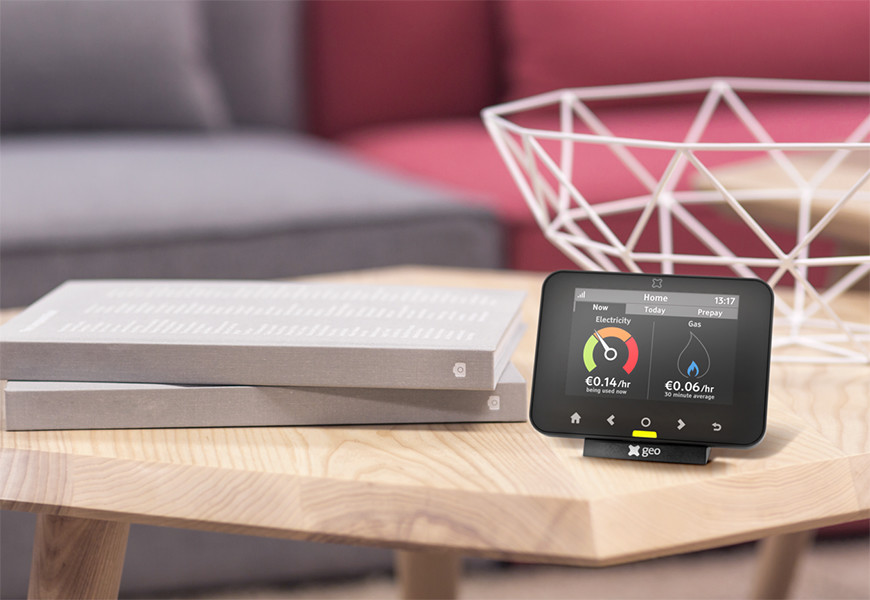
So fresh & so clean
Posted on Aug 21, 2020 by Matthew Gooding
Matt Gooding meets five pioneering Cambridge clean tech companies offering innovative solutions for a more sustainable future
Though the president of the United States may beg to differ, most would agree that climate change is the biggest challenge facing humanity. Global warming and the associated problems have the potential to impact every aspect of our lives, and the widespread demonstrations in London and other cities – including Cambridge – by climate change activists Extinction Rebellion show there is an appetite for change.
Clean technology will play a key role in driving this change, and also represents a growing business opportunity. According to research carried out by pressure group the Carbon Disclosure Project, 225 of the world’s 500 biggest companies reported climate-related opportunities that represented potential financial impacts totalling over $2.1 trillion dollars, as demand grows for low emissions technology and consumers’ preferences shift towards low carbon products.
Cambridge is home to a strong clean technology community, supported by Cambridge Cleantech, the membership organisation for the sector. As well as offering networking and support, it helps broker partnerships and financing for businesses working to build products and services in response to global sustainability challenges, and runs a programme of events including the annual summer Cleantech Futures conference and its popular Cleantech Venture Day, which sees the most promising companies from the sector travelling to London to pitch their ideas to an audience of potential investors.
Here we take a look at five companies from the region that are excelling in the clean tech space. Find out more about the work of Cambridge Cleantech at cambridgecleantech.org.uk

Azuri Technologies
Electricity is something most of us take for granted, but a billion people across the globe still live off-grid.
Approximately 600m of these people are in sub-Saharan Africa, which is where Azuri Technologies is making waves. The company offers pay-asyou- go solar power technology in 12 different countries, and has already sold more than 150,000 of these systems, impacting 750,000 lives.
The systems can power anything from lighting to satellite TV, and the pay-as-you-go model, which utilises mobile payment technology, makes it more affordable than many alternatives.
Founder and CEO Simon Bransfield- Garth, an experienced tech entrepreneur, told Catalyst: “I founded Azuri because I saw an opportunity to solve one of the biggest challenges on the planet with low-carbon and sustainable technology.
“Households often rely on technologies such as candles and kerosene lamps that would not have looked out of place centuries ago. Despite this, most have access to a mobile phone. Our innovation was combining mobile and solar technology, allowing individuals to pay for solar power as they use it, at a cost cheaper than kerosene or candles,” he explains.
 Households often rely on technologies such as candles and kerosene lamps that would not have looked out of place centuries ago
Households often rely on technologies such as candles and kerosene lamps that would not have looked out of place centuries ago
“Just as the mobile phone leapfrogged the landline, so sustainable technologies can find segments where they can replace existing solutions, particularly those relying heavily on fossil fuels,” points out Simon. “In recent years, sub-Saharan Africa has suffered from a widening gap to western nations – the so-called ‘digital divide’. The provision of power is the first step towards widespread access to communications, media and information via devices such as TV, tablets and smartphones. This allows individuals to join the knowledge economy and to start to level the playing field with more developed nations.”
Based in Milton, Azuri recently secured a $26m investment to help it roll out its technology to new markets. “We are a young but stable, well-established company,” Simon says. “We are progressing to the next stage of PayGo solar in Africa with a coherent vision of the future that will transform lives and help develop African economies.”
Bio-bean

We now drink over 95m cups of coffee a day in the UK. As well as creating a whole mound of discarded disposable cups, our collective caffeine habit throws up another problem: used coffee grounds.
Hundreds of thousands of tonnes of grounds are produced by the coffee shops that pepper high streets up and down the country, and 95% of these end up in landfill, where they produce the highly toxic greenhouse gas methane, which is 28 times more potent than carbon dioxide. As well as harming the environment, this practice hits businesses in the pocket via the government’s landfill tax. Fortunately, a company from just outside Cambridge has brewed up a solution. Bio-bean is the first business in the world to industrialise the conversion of used grounds into biofuel and other bio products. Collecting waste grounds from coffee shops, office blocks and transport, its novel process is able to recycle the grounds into ‘coffee logs’ and other types of fuel, as well as biochemicals. Bio-bean has gone from strength to strength since it was founded in 2013, opening its purpose-built factory at Alconbury Weald and launching its first product, the eco briquette, in 2016. Coffee grounds processed by the firm have been used to power London’s red buses through a partnership with Shell, and recently it secured a £4m equity investment that will allow it to scale internationally and launch three new product lines.
 Collecting waste coffee, Bio-bean's novel process is able to recycle the grounds into 'coffee logs' and other types of fuel, as well as biochemicals
Collecting waste coffee, Bio-bean's novel process is able to recycle the grounds into 'coffee logs' and other types of fuel, as well as biochemicals


Chris Harrison, CEO of Bio-bean, says: “This investment is a hugely exciting development for Bio-bean. It will enable us to push for even greater innovation in extracting commercial value from used coffee grounds – which are otherwise considered a waste – helping to further strengthen Bio-bean’s position at the forefront of the circular economy and increase the use of sustainable, second-generation resources.”
CorrosionRADAR

CorrosionRADAR is on a mission to solve a £3.5bn conundrum. The company has developed a technology to deal with corrosion in large pieces of infrastructure, such as pipelines.
“Corrosion costs the oil and gas industry alone £3.5bn a year,” explains CEO Chiraz Ennaceur. “It’s the biggest cause of mechanical failure in the world, and we’re using technology to transform the way people manage the problem.”
The company’s approach involves deploying a network of distributed sensors that can detect corrosion and moisture on any type of asset and transmit this information wirelessly back to the owner using industrial Internet-of-Things technology. The system also includes a machine learning element, which analyses data from the sensors to predict when maintenance might be needed.
 Corrosion is the biggest cause of mechanical failure in the world, and we're using technology to transform the way people manage the problem
Corrosion is the biggest cause of mechanical failure in the world, and we're using technology to transform the way people manage the problem
Chiraz explains the firm is initially focusing its technology on hidden corrosion, such as corrosion under insulation (CUI). CorrosionRADAR’s mission is to support industry that’s moving from reactive to predictive corrosion management, using its cutting-edge systems. “The current method for detecting this kind of corrosion is a visual inspection,” she says. “The issue is that it’s hard to pinpoint where the corrosion is – a lot of these assets are difficult to access, so it’s a hidden problem.
“The inspections only take place once every few years and they are very labour-intensive and often very risky for the people carrying them out, because they are having to go into hazardous environments. It’s inefficient from any angle, and our system lowers cost and lowers risk for everyone involved,” Chiraz explains.
CorrosionRADAR’s technology was developed by chief technology officer, Dr Prafull Sharma at Cranfield University, and it now has offices at Cranfield and in Cambridge. Chiraz co-founded the business in 2017 with Dr Sharma and another Cranfield graduate, chief operating officer, Dr Mehrdad Silatani, who worked for TWI at Granta Park, developing different types of technology for inspecting large pieces of infrastructure.
“From my background in industry, I know what a massive problem CUI is. Companies are always looking for new ways to deal with it,” Chiraz says. “We have already established a healthy pipeline of potential customers who want to use this new technology for corrosion monitoring. We think the offshore wind industry will be our second target market. Any area where corrosion exists but is difficult to access is where we’re looking to make a difference.”
Pavegen

Pavegen takes the idea of power walking to another level by harvesting energy generated by footsteps. Not only can the company’s clever floor tiles be used to generate off-grid power, but customers can also extract data insights about footfall patterns, as well as using them as part of reward schemes. No wonder, then, that the technology has proved popular with backers on the crowdfunding site Crowdcube. Pavegen closed its finance round at the end of June having secured £2.4m, almost treble its initial target. Notable backers include Tamar Capital and the Hinduja Group, the investment vehicle of the Hinduja brothers, who topped the latest Sunday Times Rich List. Pavegen is the brainchild of CEO Laurence Kemball-Cook, an industrial design graduate who came up with the idea for harvesting energy from footsteps while on a work placement with energy giant E.ON.
Founded in 2009, the technology went through over 120 prototypes before hitting upon what appears to be a winning formula. A decade on, Pavegen is operating in 36 countries around the world, mainly in smart city developments, and generated revenue of £1.8m last year. The crowdfunding cash will add further weight to its global expansion plans. The firm has also signed a memorandum of understanding with global engineering and technology giant Siemens to develop smart city projects together. This has seen Siemens connect Pavegen walkways to its cloud-based operating system, allowing control and monitoring of its sites from any connected device.
 Not only can the comapny's clever floor tiles be used to generate off-grid power, but customers can also extract data insights about footfall patterns, as well as using them as part of a reward scheme
Not only can the comapny's clever floor tiles be used to generate off-grid power, but customers can also extract data insights about footfall patterns, as well as using them as part of a reward scheme
Laurence explains his company, which has its R&D centre at the Future Business Centre on Kings Hedges Road, has since developed a digital ecosystem that connects to people’s smartphones, rewarding them for steps on Pavegen walkways. Its first shopping centre deployment at The Mercury Mall in East London has apparently raised engagement with the site by 15%.
“We believe in placing people at the heart of the smart city,” Laurence says. “That’s why crowdfunding works so well for us, and it’s been great to welcome so many investors into our community. With the support of Hinduja Group, Siemens and Tamar Capital, our plan of making our technology ubiquitous for all cities becomes achievable.”
GEO (Green energy options)

With more than five million installations of its technology in households across the UK and beyond, smart-home specialist Geo might be Cambridge’s most successful clean tech business. Co-founders, CEO Patrick Caiger- Smith and Simon Anderson – now a non-executive director in the company – set up Geo in 2006, intent on revolutionising the smart home interface in a bid to encourage consumer engagement and a greener way of home living.
Thirteen years later and Geo now offers a comprehensive suite of GEO (GREEN ENERGY OPTIONS) products to help consumers measure and control their energy usage and carbon footprint without even having to think about it – perfect for those of us who are very keen on saving the planet but also a bit lazy. Based just outside Cambridge, the company supplies many UK energy providers and has a presence in international markets.
Patrick says: “It has always been our belief that our smart energy technology solutions are a means to a very important end – engaging consumers so they can control their energy usage and, in this way, bring about a real, tangible change in energy usage that has a positive long-term impact on climate change”.

Geo’s products range from in-home displays that monitor energy usage, to Core, its ‘hybrid home’ energy management system. A hybrid home is one that uses a mixture of grid and self-generated (usually through solar panels) power, and Core brings these different sources together to make smart decisions on energy requirements, raising or reducing supply as required.
This sort of system could prove particularly useful as home energy usage becomes increasingly complex, with the growing popularity of things such as electric vehicles.
Now employing over 100 staff, Geo’s success was recognised earlier this year when the London Stock Exchange included it in the list of 1000 companies to inspire Britain. Businesses selected for the list had to demonstrate positive revenue growth over the last three years and outperform their sector peers.
“This achievement recognised both our business success and commitment to innovation and market development,” Patrick concludes.



